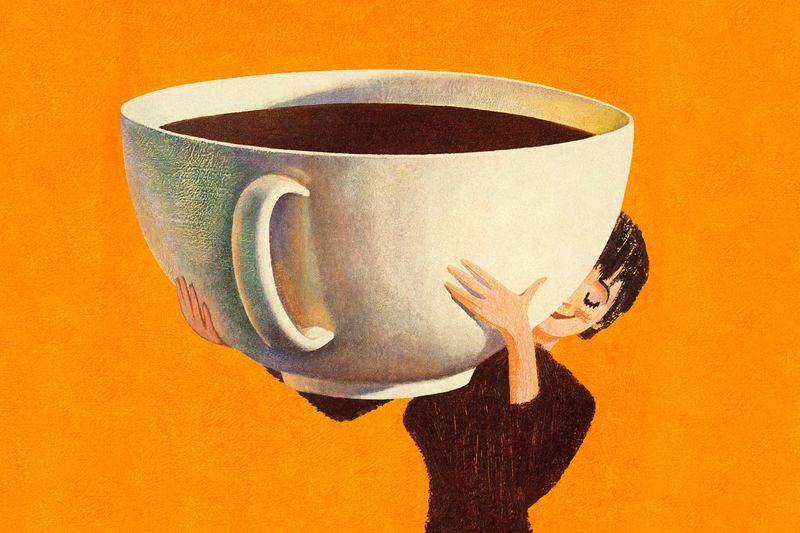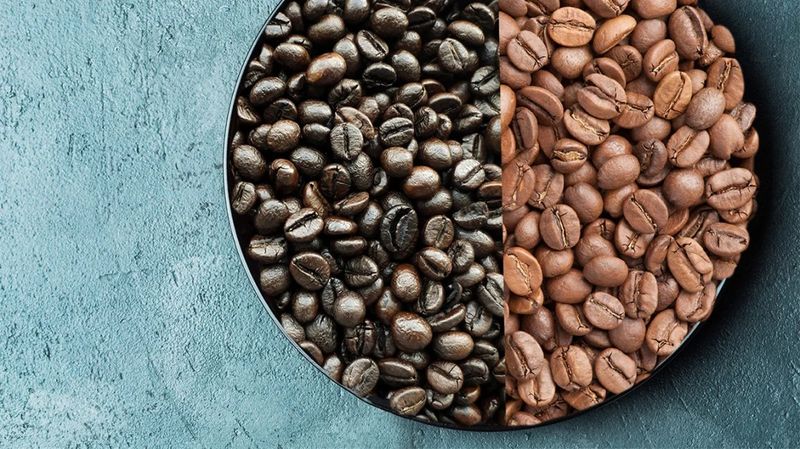Ever feel like your morning coffee is the only thing keeping you human? You’re not alone—and science is on your side. Beyond its comforting aroma and bold kick, coffee is brimming with benefits that might just surprise you, from boosting your brain to protecting your liver. But while coffee can be your daily hero, the way you drink it matters. A few small tweaks can transform your cup from a jittery indulgence into a health-boosting ritual you can feel good about. Here’s why coffee deserves a daily place in your routine—and how to make it even better.
1. Antioxidant Powerhouse
Your morning brew actually contains more antioxidants than many fruits and vegetables combined! These powerful compounds fight harmful free radicals in your body, reducing cell damage and slowing the aging process.
Most Americans actually get more antioxidants from coffee than from any other dietary source. The roasting process creates unique antioxidants that aren’t found in other foods.
Even decaf coffee retains most of these beneficial compounds, so you’ll still get the antioxidant benefits without the caffeine jitters if that’s your preference.
2. Brain Function Booster
Scientists have discovered that coffee lovers may have up to 65% lower risk of developing Alzheimer’s disease. The caffeine and bioactive compounds in coffee work together to protect brain cells and enhance cognitive function.
Coffee stimulates the central nervous system and increases the production of neurotransmitters like dopamine, which improves mood and focus. Regular drinkers often report better memory retention and quicker reaction times.
A fascinating Finnish study found that middle-aged people who drank 3-5 cups daily had a 65% lower risk of dementia and Alzheimer’s later in life compared to non-drinkers.
3. Workout Performance Enhancer
Forget expensive pre-workout supplements – a cup of coffee 30-60 minutes before exercise can significantly boost your performance. Caffeine increases adrenaline levels in your blood, preparing your body for intense physical exertion.
Coffee helps break down body fat, making free fatty acids available as fuel. Many Olympic athletes rely on caffeine’s performance-enhancing effects, which can improve endurance by up to 12% in some studies.
The boost isn’t just physical – coffee also reduces your perception of effort, making workouts feel easier while you’re actually pushing harder than usual.
4. Diabetes Risk Reducer
Each daily cup of coffee might lower your risk of type 2 diabetes by 7%, according to large-scale studies. Coffee contains compounds that help your body use insulin properly, regulating blood sugar effectively.
Chlorogenic acid, a major component in coffee, slows the absorption of glucose in your digestive tract. This prevents sudden spikes in blood sugar that can contribute to insulin resistance over time.
Both caffeinated and decaffeinated coffee show this protective effect, suggesting caffeine isn’t the only beneficial compound. The magnesium and chromium in coffee also play roles in proper glucose metabolism.
5. Liver Guardian
Your liver absolutely loves coffee! Regular drinkers show up to 80% lower rates of cirrhosis, especially alcoholic cirrhosis. Coffee stimulates liver enzymes that help break down potentially harmful compounds in the blood.
People who drink four or more cups daily have a significantly reduced risk of developing liver cancer. Coffee seems to lower levels of dangerous liver enzymes in people at risk for liver diseases.
Coffee’s protective effect appears strongest against hepatocellular carcinoma, the most common type of liver cancer. Even in people with existing liver damage, coffee can slow disease progression and improve outcomes.
1. Skip the Sugar Bombs
A caramel frappuccino with whipped cream can pack a whopping 50-60 grams of sugar – more than a candy bar! Adding just two tablespoons of flavored creamer adds 10+ grams of sugar and unhealthy oils to your otherwise healthy brew.
Try weaning yourself gradually to appreciate coffee’s natural flavors. Start by cutting your usual sugar amount in half, then gradually reduce it further over several weeks.
Natural alternatives like cinnamon, vanilla extract, or a tiny pinch of salt can enhance coffee’s flavor without sugar. If you must sweeten, try small amounts of honey, maple syrup, or stevia for fewer negative health impacts.
2. Embrace Lighter Roasts
Dark roasted beans might smell amazing, but lighter roasts actually contain up to 60% more chlorogenic acid – one of coffee’s most powerful antioxidants. The extended roasting process that creates those deep flavors actually destroys many beneficial compounds.
Light to medium roasts also contain slightly more caffeine, giving you more energy per cup. They typically offer brighter, more complex flavor profiles with fruity or floral notes that dark roasting can mask.
Many coffee connoisseurs are now celebrating these lighter roasts for both health and taste reasons. Experiment with different origins and processing methods to find lighter roasts that satisfy your palate.
3. Spice Up Your Brew
Adding just half a teaspoon of cinnamon to your coffee grounds before brewing can stabilize blood sugar and add antioxidants without any calories. This simple trick transforms ordinary coffee into an anti-inflammatory powerhouse.
Unsweetened cocoa powder (not hot chocolate mix) adds rich flavor while delivering flavanols that improve blood flow and heart health. A dash of cardamom, a traditional addition in Middle Eastern coffee, aids digestion and freshens breath.
For a metabolism boost, try adding a pinch of cayenne pepper – it pairs surprisingly well with coffee’s natural bitterness while increasing calorie burning. These natural spices enhance coffee’s benefits without the downsides of artificial flavors.
4. Watch Your Clock
Caffeine has a surprisingly long half-life of 5-6 hours, meaning half the caffeine from your 3 PM coffee is still active at 9 PM! This lingering stimulant interferes with both falling asleep and achieving deep, restorative sleep stages.
Your body’s sensitivity to caffeine is largely genetic. Some people can fall asleep immediately after an espresso, while others need to cut off caffeine by noon to sleep well. Morning coffee actually reinforces your natural circadian rhythm when timed right.
Try enjoying your cup 1-2 hours after waking rather than immediately – this works with your body’s natural cortisol peak for optimal alertness throughout the day.









Leave a comment